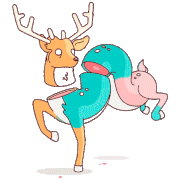|
Junpei posted:
If you are going to post memes, can you at least offer your own opinion? I'm with Nae that we don't have enough context to determine if this line is good or not. The metaphor "loving Freedom" is odd and vulgar to me, so while I personally dislike it, if the story was going for that tone it would be a good line.
|
|
|
|

|
| # ? May 11, 2024 06:38 |
|
You know what that's a fair point, I haven't really been offering much of my own opinion because... well I'm new here so I feel like my opinions are less valid or at the very least less thought-out than most of you Big Shot Super Writers With Experience. Anyway I find the line just kind of amusing, and I probably wouldn't cut it but I admit that it is kind of cheesy.
|
|
|
|
It’s good!!! Anyway the way we react to things when they’re held up for judgment is rarely the way we take them when we’re in reader’s trance.
|
|
|
|
Junpei posted:You know what that's a fair point, I haven't really been offering much of my own opinion because... well I'm new here so I feel like my opinions are less valid or at the very least less thought-out than most of you Big Shot Super Writers With Experience. Also like, we're a resource -- we're here to help, not to burn you down. People get into storytelling because they love stories, and enabling others to tell their own stories loving rules.
|
|
|
|
when in doubt, just remember that everyone here paid $10 to join a dead site for dumb jokes, which means we're all big morons
|
|
|
|
Alright, fair enough. I linked my thread with my story earlier but I figure now it wouldn't hurt to be a little more direct and link the thing directly. This is, as a reminder, the Japan/Journey to the West-inspired fantasy that's also pulling a bit from Deltora Quest. https://docs.google.com/document/d/1u9qXLOZdwOUmykZquv3d8qcuBSdnjI0oPNjetUeiyjY/edit?usp=sharing
|
|
|
|
I’m pretty much a perma-noob on this stuff, if that’s of any comfort. And I joined ages ago, so I guess I can take solace in the fact that I may have aided in the decline then?
|
|
|
|
A new person's opinion is just as valid and needed as a veteran's bc at the end of the day we're all morons walking into walls trying to string words together.
|
|
|
|
I'd rather talk shop with a self-described new person than talk about the post of a person who's not here to engage with us.
|
|
|
|
Like has already been said, it's impossible to tell if the line is good from what we have. If it's the thoughts of a rakish rogue in some pulp-styled genre fiction, it's good. If it's the thoughts of some bored heiress in a period drama, it might still be good.
|
|
|
|
It's a very arch line, but if that's the intent then it lands; sometimes you gotta just swing for the fences. If the whole book makes choices that big and bold then it might come off silly, but also if the whole book is extremely po-faced and serious it'll come off even sillier – it works if it's in a text trying to ride that razor, that's pulpy enough for it to fit but not so pulpy that it gets drowned out.
|
|
|
|
is there a context in which all the Inner Goddess lines from 50 Shades would actually be good
|
|
|
|
SurreptitiousMuffin posted:It's a very arch line what does the word arch mean in this context? I couldn't find a relevant definition on dictionary.com I've seen it used like this before and I've never been able to pin down what it conveys.
|
|
|
|
Fate Accomplice posted:what does the word arch mean in this context? a: MISCHIEVOUS, SAUCY b: marked by a deliberate and often forced playfulness, irony, or impudence known for her arch comments … decided to answer them by being teacherly in a sort of arch, Olympian way. Etymology: The prefix figured in so many derogatory uses (arch-rogue, arch-knave, etc.) that by mid-17c. it had acquired a meaning of "roguish, mischievous," softened by 19c. to "saucy."
|
|
|
|
Megazver posted:a: MISCHIEVOUS, SAUCY thank you - my best guess before this was a shortening of archetypal.
|
|
|
|
Megazver posted:is there a context in which all the Inner Goddess lines from 50 Shades would actually be good a woman leading a yoga class that doubles as an essential oils sales pitch
|
|
|
|
Holy what this thread got posts? I just missed all the good poo poo. But but I got some thoughts on some poo poo. Identity stuff: Everyone made lots of good points but one thing about the imperative to write your identity is that this can cut both ways. I have a distinctive component to my identity that is very marketable I think, and if executed to my personal standards—too loving high I don’t finish poo poo don’t ask—then I think it would be an asset. But you know what scares the piss outta me? Let’s pretend my burbling sludge font meant to pass for insightful and sharp fiction from a distinctive and unexplored identity in this new world where we prioritize giving voices to marginalized writers *inhale* actually succeeds despite itself and despite my prominent ineptitude. Well then loving what? I’ve become that kind of writer that writes those kinds of books from that perspective, so now wtf’s a neophite zero-to-best-seller overnight sensation to do? I’m being absurd, but the point stands. Marginalized writers risk an industry commoditizing them into a corner, and that poo poo scares the hell out of me and has been responsible for a great deal of my self-doubt in every single project I’ve shelved. The burden of expectation is kinda hellish and I credit any minority writer that somehow someway navigates those frothing strates with their sanity and craft intact. And to go a wee bit further back to the debate about characters writing themselves through the plot vs. it’s work Jack stop your hoodoo bullshit. It seems to me that this community rebels against notions of unknowable underpinnings in craft. And I think it does so for good reason. There are plenty of unsavory peddlers of nebulous nothings whose wares are fatal to a young writer’s development. I think that rebellion’s the good poo poo and I’ve silently absorbed more good advice from this community than I can conceivably recall on command. That selfish theft is my great shame, btw. But like, the subconscious is a thing, and I’ve sat down to write and entered a state akin to meditation, where my fingers are operating on instruction from parts of my mind that I don’t access when I’m fully planted in the terestrial. And I think beginning writers need to internalize the sit the gently caress down and shut the gently caress up stuff first, but neglecting that strange place where intuition and whimsy interlock and where the watchmaker won’t walk, you know, the place where poo poo doesn’t make sense and things happen according to the rules of your sub sub sub basement where light never penetrates, that’s where some of the best stuff is, because when your’e writing like that, okay, when I’m writing like that, I am truly inhabiting someone or something other than me. I know that people kinda don’t like this view, because it removes human inginuity and discipline from the equation, but it is a real thing. I always think that’s worth remembering. This post brought to you by someone who’s not finished a project in years except one questionable TD entry, but keeps at it anyhow cause why the gently caress not?
|
|
|
|
Junpei posted:Alright, fair enough. I linked my thread with my story earlier but I figure now it wouldn't hurt to be a little more direct and link the thing directly. Well, here's my opinion on the first few pages: It's very anime-inspired. The dialogue tics, like the cutesy stammering and the use of ellipses for dramatic pauses, don't work in prose the way they do in anime/manga. The first few pages throw a lot of information at the reader: names of several characters, stuff about wolves and bears, some clumsily introduced backstory. But it doesn't have a hierarchy of information; we're just seeing the characters chatting randomly about their lives. I would much rather see just one concept introduced but fleshed out in a way that engages me with the characters. What age range is this aimed at? The style and the mention of Deltora Quest makes me think 8-12s, but the characters are 17 years old? If it's inspired by Deltora Quest are there going to be puzzles?
|
|
|
|
I was thinking more in terms of book structure and general overall plot-100 to 150-ish pages per book that's longer than a trilogy, with a group going throughout a world on a road trip to collect special things where every book has a new location and new obstacles. In terms of the target audience I'm definitely not going full adult but there might be some light swearing and a more explicit romance, but Deltora Quest got really drat dark at points in terms of drama/character deaths/horror and I'll probably have some moments like that as well. Definitely in the YA-y area.
|
|
|
|
Fate Accomplice posted:thank you - my best guess before this was a shortening of archetypal.
|
|
|
BurningBeard posted:Well then loving what? I’ve become that kind of writer that writes those kinds of books from that perspective, so now wtf’s a neophite zero-to-best-seller overnight sensation to do? This is something else I've been warned about, yeah. In my case, I wasn't sure I should list my various minority perspective things in my query, but considered it when my beta readers said they that perspective came through very strongly across the whole text. And, in my case, I think explains why I have such an interest in the genre in the first place and possibly fiction in general. quote:It seems to me that this community rebels against notions of unknowable underpinnings in craft. And I think it does so for good reason. There are plenty of unsavory peddlers of nebulous nothings whose wares are fatal to a young writer’s development. This is true, but I think the reason why people rebel against it is because it's not very helpful. There is an element of mysterious inspiration and unknowable creative processes to writing and I know from personal experience that some of my best stuff has come from lying half asleep in my bed and a sentence pops into my brain. But I think it's more important (and helpful) to emphasise the ability to just knuckle down and churn out words even when that inspiration hasn't hit you. Because sometimes really great stuff can come from that, too. And every day you spend waiting for your muse to descend from Olympus is one more day that your story remains incomplete. It stems from the same place as my curt comments on the meme posts earlier, actually. It wasn't that they were memes specifically but that they establish the act of writing as this extremely difficult arduous task and it's oh so hard, nothing is as hard as writing. To me, that kind of thing is like radiation. It might not harm you immediately, and maybe not for a while, maybe not ever, but why expose yourself? If that's the sort of atmosphere someone cultivates around writing then I don't think it's much of a surprise that writing feels so difficult or they keep finding themselves with "writer's block." I can't remember the last time I had writer's block like I used to have, and I think a lot of that comes down to how writing a web serial a few years back forced me to get used to just writing x amount of words a week. Like, writing isn't easy, either. But then it's like, hey, why make it any harder on yourself, y'know?
|
|
|
|
|
I think most writing happens in parts of the brain that we don't consciously use. All my best stories feel like they just kinda fell into my head. Most of my process is actually figuring out how to get out of my own way so I can let the smarter parts of my brain do their thing. Writing can be downright esoteric and dare i say even chthonic. It's mysterious as hell because the brain is mysterious as hell. The reason the "my characters write themselves heehee" meme annoys me personally is because it's just the twee sort of poo poo people say when they're writing about writing.
|
|
|
|
I think there is a joy when characters act out, though -- robots follow orders, people don't, and when it suddenly occurs to you that there's just no way x would do y like the outline says, you know you're onto something, that you've written a person. To say that they're writing themselves is a metaphor, but it's a very fine metaphor.
|
|
|
|
Sitting Here posted:I think most writing happens in parts of the brain that we don't consciously use. All my best stories feel like they just kinda fell into my head. Most of my process is actually figuring out how to get out of my own way so I can let the smarter parts of my brain do their thing. Writing can be downright esoteric and dare i say even chthonic. It's mysterious as hell because the brain is mysterious as hell. Yeah fwiw I agree with that completely. Like when someone puts the act of doing the work on some kind of elevated plateau beyond human understanding it's loving annoying. It's not beyond the reach of regular folks. Treating it that way is dangerous for a healthy relationship to the work. It's an unrealistic premise on which to base a healthy practice and it really is obnoxious because it treats the work as a magic thing not available to people. So like it's logical to be irritated by it. Hopefully what I was saying doesn't come across as negative toward the grounded approach. I just like acknowledging the fact of mystery behind our creative impulse. I always liked Pressfield's take on it from The War of Art. Paraphrased,he says that discipline is vital because the muse needs to know where to find you. If you’re in the same place every day doing the same poo poo every day, she knows where to look.
|
|
|
|
BurningBeard posted:But like, the subconscious is a thing, and I’ve sat down to write and entered a state akin to meditation, where my fingers are operating on instruction from parts of my mind that I don’t access when I’m fully planted in the terestrial. And I think beginning writers need to internalize the sit the gently caress down and shut the gently caress up stuff first, but neglecting that strange place where intuition and whimsy interlock and where the watchmaker won’t walk, you know, the place where poo poo doesn’t make sense and things happen according to the rules of your sub sub sub basement where light never penetrates, that’s where some of the best stuff is, because when your’e writing like that, okay, when I’m writing like that, I am truly inhabiting someone or something other than me. I know that people kinda don’t like this view, because it removes human inginuity and discipline from the equation, but it is a real thing. I always think that’s worth remembering. Hell yes. Where this ends up really helpful for me to remember is when I’ve beat my brain against a story problem so long I’m forced to give up for the night and go to bed, and then I wake up with the answer or a fresh scene in my head or something that helps me blow past my stuckness. Also sometimes it helps just to take a break from the actual act of writing and do nothing but daydream possibilities for a day. The prerequisite for that is actually putting in a ton of work though, because if you don’t push yourself, your subconscious (or at least mine) doesn’t feel the need to grind the problem in the background, so nothing happens
|
|
|
|
SurreptitiousMuffin posted:I think there is a joy when characters act out, though -- robots follow orders, people don't, and when it suddenly occurs to you that there's just no way x would do y like the outline says, you know you're onto something, that you've written a person. To say that they're writing themselves is a metaphor, but it's a very fine metaphor. I agree with you, I'm just a cynical old bird who has seen too many people write the same three chapters over and over while carrying on about their quirky and unruly characters. I think it's easier to fall into that trap if you build the writing process up in your mind as this mysterious arcane practice with self-driving characters and secretive muses.
|
|
|
|
Sitting Here posted:I agree with you, I'm just a cynical old bird who has seen too many people write the same three chapters over and over while carrying on about their quirky and unruly characters. I think it's easier to fall into that trap if you build the writing process up in your mind as this mysterious arcane practice with self-driving characters and secretive muses. Yeah, I agree with this. There's certainly a major chunk of the writing process that's unconscious, and I think developing an intuitive understanding of your characters is an important step in writing plausible human beings, but I think those facts are often used to remove agency from the writer and justify never actually writing anything. Having ideas is great! Formulating characters that you come to really understand and that feel real to you is also great! It's just not the actual work, and you can't get around the actual work if you want to create narrative, in the same way you can't get around practicing visual arts by having enough "talent." TBH, I wish more people would be honest with themselves about just enjoying creative play, not necessarily being "writers." If you're satisfied with worldbuilding, or creating OCs, or dinking around with plots you don't really have any interest in writing, or mentally composing little snippets of metaphor and verse about your daily life, that's fine as an end goal in and of itself, and I think a lot of people would be happier if they just relaxed and allowed themselves to enjoy that for what it is instead of feeling like they have to make excuses for having not written their novel yet.
|
|
|
|
Yeah I mean, you need craft and diligence and dedication to put yourself into a position where you can – to get a bit fuckin poetic but hopefully demystify how this poo poo actually works – channel the muses. A writer with craft and no inspiration will write competent-but-derivative work, a writer with inspiration and no craft will write crap.
|
|
|
|
Antivehicular posted:
I agree with all of this. It's just fine to be a hobbyist writer! Not every story is saleable. Not every story should be sold. I'd love to sell one of my stories, but I'm also fine being a writer in the same way that I'm a skier: I'll never really be a pro but it's really really fun to dabble. I suspect the mysticism comes from the lack of spiritual fulfillment I see as endemic in modern (admittedly American) life but that's probably for a whole nother thread.
|
|
|
|
Like, I do not like discussing The Craft in purely technical terms, this Tatyana Tolstoya quote has been living in my head rent-free every since I saw it and ... yeah that's kinda what it feels like; there is a magic to Inspiration, something of the touch of the divine, it feels like life moving under your fingers. I don't think mysticism is entirely the wrong path, if anything I think we rely too much on beat sheets, on techniques, on trying to be coldly logical in the face of something that sometimes feels loving supernatural. quote:A “pre-Square” artist studies his craft his entire life, struggling with dead, inert, chaotic matter, trying to breathe life into it; as if fanning a fire, as if praying, he tries to ignite light within a stone; he stands on his tippy toes, craning his neck in an attempt to peek where the human eye cannot reach. Sometimes, his efforts and prayers, his caresses, are rewarded: for a brief moment, or maybe for a long while, “it” happens, “it” “appears.” God (an angel, a ghost, a muse, or sometimes a demon) steps back and acquiesces, letting go from his hands those very things, those volatile feelings, those wisps of celestial fire—what should we call them?—that they saved for themselves, for their wondrous abode that is hidden from us. Having solicited this divine gift, the artist experiences a moment of acute gratitude, unhumiliating humility, unshameful pride, a moment of distinct, pure, and purifying tears—both seen and unseen—a moment of catharsis. But “it” surges, and “it” retreats, like a wave. The artist becomes superstitious. He wants to repeat this moment, he knows that, next time, he may not be granted a divine audience, and so his spiritual eyesight opens up, he can sense with deep inner foreknowledge what exactly—avarice, selfishness, arrogance, conceit—may close the pearly gates in front of him. He tries to wield his inner foreknowledge in such a way as to not sin before his angelic guides; he fully understands that he’s a co-author at best, or an apprentice—but a crowned co-author, a beloved apprentice. The artist knows that the Spirit blows wherever it pleases. He knows that he, the artist, has done nothing in his earthly life to deserve being singled out by the Spirit, and so if that happens to pass then he should joyfully give thanks for this wonder. And I understand this need to remind baby writers "no, that comes later, first you need to do the hard yards, you can't catch lightning in a bottle without first breaking a lot of bottles", but I can't bring myself to push it away, that feels like consigning myself to the sunken place.
|
|
|
|
Antivehicular posted:Yeah, I agree with this. There's certainly a major chunk of the writing process that's unconscious, and I think developing an intuitive understanding of your characters is an important step in writing plausible human beings, but I think those facts are often used to remove agency from the writer and justify never actually writing anything. Having ideas is great! Formulating characters that you come to really understand and that feel real to you is also great! It's just not the actual work, and you can't get around the actual work if you want to create narrative, in the same way you can't get around practicing visual arts by having enough "talent." I’d really argue that this is a false dichotomy. Like, I’m not a pro. I’m the first person who’ll tell you that. But I take my work very seriously and roll with the punches as regards my professional prospects. If it happens it happens, if it doesn’t it doesn’t. And I’ve always viewed creative play as a tool in that belt. Sure, someone might ask, “But where’s your finished work? Have you made any money? Have you been validated?” But who needs validation? The act is valuable in and of itself. There’s so much angst about all of it, the who counts and who doesn’t? I’ve hung out with that angst when I’m creatively flagging and written anyway. The writing’s all that matters. If you never turn pro it’s fine. But that doesn’t exclude one from some secret society. It’s just the line between paid and not. To be fair to your point, I do think there are lots of folks that like the idea of having written rather than actually sitting down and getting on with it. But in my experience those folks self-select out of the whole thing when they discover that it’s actually quite hard.
|
|
|
|
Does anyone have any suggestions for reflecting on one's own writing practice? For example, I started keeping a book of "writing wisdom" that I write in whenever I've thought of something worth remembering (often these insights are specific to me rather than general). I also did a post mortem on my last novel, which I didn't finish. I tried to identify lessons and pitfalls to avoid so I would still get something productive out of the work. I should probably do something similar with my writing successes, to pick out what worked well so I can do that more. Anybody else have any techniques like that?
|
|
|
|
One thing I do is keep a written record (I use a spreadsheet) of every time I sit down and write. I record the (rough) time I start, the duration, the words written and so on and calculate things like words written per minute/hour. From this, I've discovered a few things that have helped me structure my writing time e.g. "I struggle to get started but once I do, I can write at a fairly rapid pace for up to an hour" or "I find it easiest to set aside time to write in the evenings despite being tired". I took this idea from "2k to 10k" by Rachel Aaron which, slightly click-baitey title aside, I found to be a very useful and grounded look at writing faster/more efficiently. I've also found it useful to go back and look at the gap between my first and second drafts. A lot of the changes in subsequent drafts are smaller but my second drafts tend to involve bigger, structural changes. In the last novel I finished, for example, to get to the second draft I built out a table listing all the plot threads I could identify and how they were advanced in each chapter - I then used this to identify visually where some threads were sparse or some chapters had too much/little going on. That worked well for me and in future projects I can (a) do that as part of planning the first draft, and (b) avoid types of plot threads that I know I overuse. I also get a lot of value out of going back and reading over my various "fix it" lists. For each draft I write, I have a "fix it" list - a separate document which is just a bulletpoint list of things to fix broken down by chapter. As I'm writing the draft, I populate this with things like "Don't like the dialogue in chapter 3 between mark and sue - go back and fix" or "Is that a realistic weight for a horse?" or "I'm pretty sure I used this name before - make sure it's not confusing". It might even be "Don't need character X - wrote chapters 4 onwards as if they don't exist, go back and remove from chapters 1-3". This is useful at the time, as it allows you to focus on writing that draft without constantly making changes on changes on changes. It's useful when doing the next draft, as it covers a lot of things you might not pick up later on. It's also useful after the fact, because I can go back and see, for example, "Oh, half my fixit list for Draft 1 was complaining about dialogue" and know that I need to develop that skill more. I guess the running theme is document as you go along so you have an easy thing to review afterwards? Usual caveats: what works for me might not work for you, I'm a very data-driven person, etc.
|
|
|
|
Sailor Viy posted:Does anyone have any suggestions for reflecting on one's own writing practice? For example, I started keeping a book of "writing wisdom" that I write in whenever I've thought of something worth remembering (often these insights are specific to me rather than general). I also did a post mortem on my last novel, which I didn't finish. I tried to identify lessons and pitfalls to avoid so I would still get something productive out of the work. I should probably do something similar with my writing successes, to pick out what worked well so I can do that more. I set a specific goal for each project and then also specific KPIs to measure the activities that lead to that goal. I limit it to 4 KPIs because more than that gets messy. One is words per hour, when drafting. The other 3 KPIs are all related to structure, prose and overall quality of writing and get measured based on reader feedback. I do a reflection after every project against my goal and my KPIs on what I did well, what I can do better and what I should have done differently. Some of these get posted as vlogs, others just stay in my journal. As part of this, I consider if there are any themes in the feedback I get from my writing group - usually there is something and that'll be what I try to work on next. I yell at myself real time by commenting in line on my draft. Writing down the negative thoughts just helps me move on because I know I won't forget them and then I go back later and can (sometimes) laugh at own ridiculousness (and the other times I just fix the issue). If I get stalled over a particular word choice or world building decision or what have you, I just put "XXX" and move on for that first draft. Those get filled out later in a subsequent pass. This has been great for getting the first draft out but terrible for revision. Sometimes it's also just pattern recognition. Like I know when I get stuck, it's usually because there's a structural issue and I don't know what the conflict is. Once I get clarity on that, it's relatively easy to keep moving forward. Staggy posted:One thing I do is keep a written record (I use a spreadsheet) of every time I sit down and write. I record the (rough) time I start, the duration, the words written and so on and calculate things like words written per minute/hour. I log every writing session too. Here's the spreadsheet I use if anyone wants it: https://bit.ly/2U1601w Seconding the need to track and collect data though. I went and did an analysis of the number of hours each chapter and scene took vs the number of comments, the kind of comments I left for myself and XXX placeholders and it was illuminating, in the sense that my brain is a completely inaccurate judge. Scenes that felt like they took forever weren't actually that bad, and there was also zero correlation between hours taken and the number of comments and placeholders. The thing I haven't figured out how to track accurately is revision. Word count is a terrible measure because during revision it's not about getting the words down on the pages anymore, it's about getting the right words on the page in the right order. Hours is also terrible because the scope of revision needed on every scene is so different. All I know right now is if we measure by net WPH, then on average, I draft twice as fast as I revise.
|
|
|
|
Leng posted:The thing I haven't figured out how to track accurately is revision. Word count is a terrible measure because during revision it's not about getting the words down on the pages anymore, it's about getting the right words on the page in the right order. Hours is also terrible because the scope of revision needed on every scene is so different. This is something I struggle with as well. The best approach I've found so far has been time per scene but only looking at broader trends/averages. Like you say, time spent on scene 5 versus scene 6 isn't particularly helpful; however, average time per scene in Act 1 versus Act 2 versus Act 3 can be useful in identifying the areas I struggle with in the first draft. I tried categorizing scenes (e.g. "I take X minutes to revise a dialogue-heavy scene versus Y minutes for an action-heavy scene of comparable length") but didn't get much out of it.
|
|
|
|
I don't really focus much on the measurement. It might ultimately provide useful insight, but some scenes I end up rewriting six times while other scenes arrive fully formed in draft two and ten revisions later remain unchanged spare the addition of three dialogue tags. Trying to compare across them seems futile. I'd love to see a writing program that keeps a record of how many words I type in a session, instead of how many words the document ends up having in it.Staggy posted:I also get a lot of value out of going back and reading over my various "fix it" lists. For each draft I write, I have a "fix it" list - a separate document which is just a bulletpoint list of things to fix broken down by chapter. As I'm writing the draft, I populate this with things like "Don't like the dialogue in chapter 3 between mark and sue - go back and fix" or "Is that a realistic weight for a horse?" or "I'm pretty sure I used this name before - make sure it's not confusing". It might even be "Don't need character X - wrote chapters 4 onwards as if they don't exist, go back and remove from chapters 1-3". This is useful at the time, as it allows you to focus on writing that draft without constantly making changes on changes on changes. I do a lot of this kind of thing. I particularly try to flag things that will create a distraction while writing, like "this character doesn't have a name" or "I need to research horse weight" or whatever, and then I go through all of those at once so that when I'm writing I don't have to run off and pick a name or read about horses. Leng posted:All I know right now is if we measure by net WPH, then on average, I draft twice as fast as I revise. I've also found that I draft much faster than I revise. I've been able to speed up revision quite a lot by changing my approach to revision to be closer to my approach to drafting. For both of them I work in a bunch of narrowly focused iterative passes. That might mean that I do 10+ distinct passes on each scene before it's "done" (and then three or four or six more editing passes). It helps me avoid wasting time because I can identify structural issues before fixing them requires lots of rewriting, or I can identify dialogue issues before there's a bunch of tagging and description etc. Any issues I notice while doing a pass that are outside of the scope of that pass I just flag up and move on instead of getting bogged down trying to fix them. I've also found that I have been able to make things move along faster by keeping pages (on a local wiki) with writing reference information that's been gathered/collated to my taste, stuff like:
There's also some setting information I find useful to have organized for quick reference:
It takes some work to gather and organize all of that stuff to be useful, but it saves the much larger amount of time I would spend trying to figure out individual instances of those things if I was working on them one by one. Wallet fucked around with this message at 15:29 on Jan 11, 2022 |
|
|
|
Staggy posted:This is something I struggle with as well. The best approach I've found so far has been time per scene but only looking at broader trends/averages. Like you say, time spent on scene 5 versus scene 6 isn't particularly helpful; however, average time per scene in Act 1 versus Act 2 versus Act 3 can be useful in identifying the areas I struggle with in the first draft. I tried categorizing scenes (e.g. "I take X minutes to revise a dialogue-heavy scene versus Y minutes for an action-heavy scene of comparable length") but didn't get much out of it. Wallet posted:I don't really focus much on the measurement. It might ultimately provide useful insight, but some scenes I end up rewriting six times while other scenes arrive fully formed in draft two and ten revisions later remain unchanged spare the addition of three dialogue tags. So far I've only been able to think of two alternative metrics that might be useful. The first is "number of first draft words revised per hour". As in, if scene X is 2000 words long, and you spend 1 hour to finish your current revision pass on that scene, you're revising 2000 words per hour. I think this is the metric Sanderson uses when he updates his progress bars. He writes about 2000-3500 words a day (at around 500 words per hour) but he's been on record about revising much faster (I can't find the quote right now but I have something like 10k words a day in my head). You'd have to be pretty structured about doing separate revision passes for this to be a reliable measure. Like doing a pass for subtext is going to be different than doing a pass for word choice or filling in descriptive details or eliminating unnecessary words, and you'd also have to chunk it up, probably at the scene level. Which I, so far, have not been and is really slowing me down. The second is related, in that it's also the "number of hours spent revising" but instead of by scene, it's scoped on the nature of the revision (e.g. add subtext, change motivations, add new scene, continuity issues, etc) because that's what really dictates how long the revision will take. Nailing all of the subtext and motivations in a heavy emotional scene is much harder than punching up the pacing in an action sequence  because I have to think several layers deeper. because I have to think several layers deeper.I haven't been organized with tracking this for my alpha read revisions but I will give it a shot when I start doing beta read revisions. Wallet posted:Trying to compare across them seems futile. I'd love to see a writing program that keeps a record of how many words I type in a session, instead of how many words the document ends up having in it. Scrivener does track this - and it tracks both words written and words deleted. I haven't personally ever used it so can't speak to how useful it is. Wallet posted:I've also found that I have been able to make things move along faster by keeping pages (on a local wiki) with writing reference information Ever since I've switched from a bloated Google Doc to a wiki to organize all my notes, I have not looked back. Wikis are a lifesaver. The only thing I hate about TiddlyWiki is sometimes I need to embed images and since the wiki is a single .html file, that kinda sucks.
|
|
|
|
Leng posted:
It's super useful as you can gamify your sessions (and not have it include writing outside of whatever parameters you choose, so you can write in a scratchpad or background section and not have it count if you're trying to get your main manuscript word count up). Setting out to tackle one 500 word chunk often leads to another once you've filled the bar up.
|
|
|
|
Hey, does anyone have any recommendations for Copy editors? The one I used before (BookSide Manner) is "booked" up for the next few months, and I need the piece edited for March.
|
|
|
|

|
| # ? May 11, 2024 06:38 |
|
I've used Darling Axe in the past and found them to be thorough and affordable and I'd almost certainly use them again.
|
|
|
|












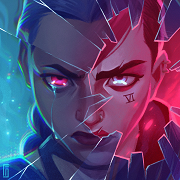





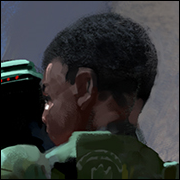

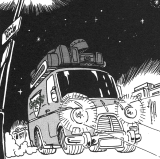
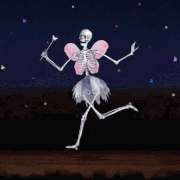
 thunderdome winner
thunderdome winner